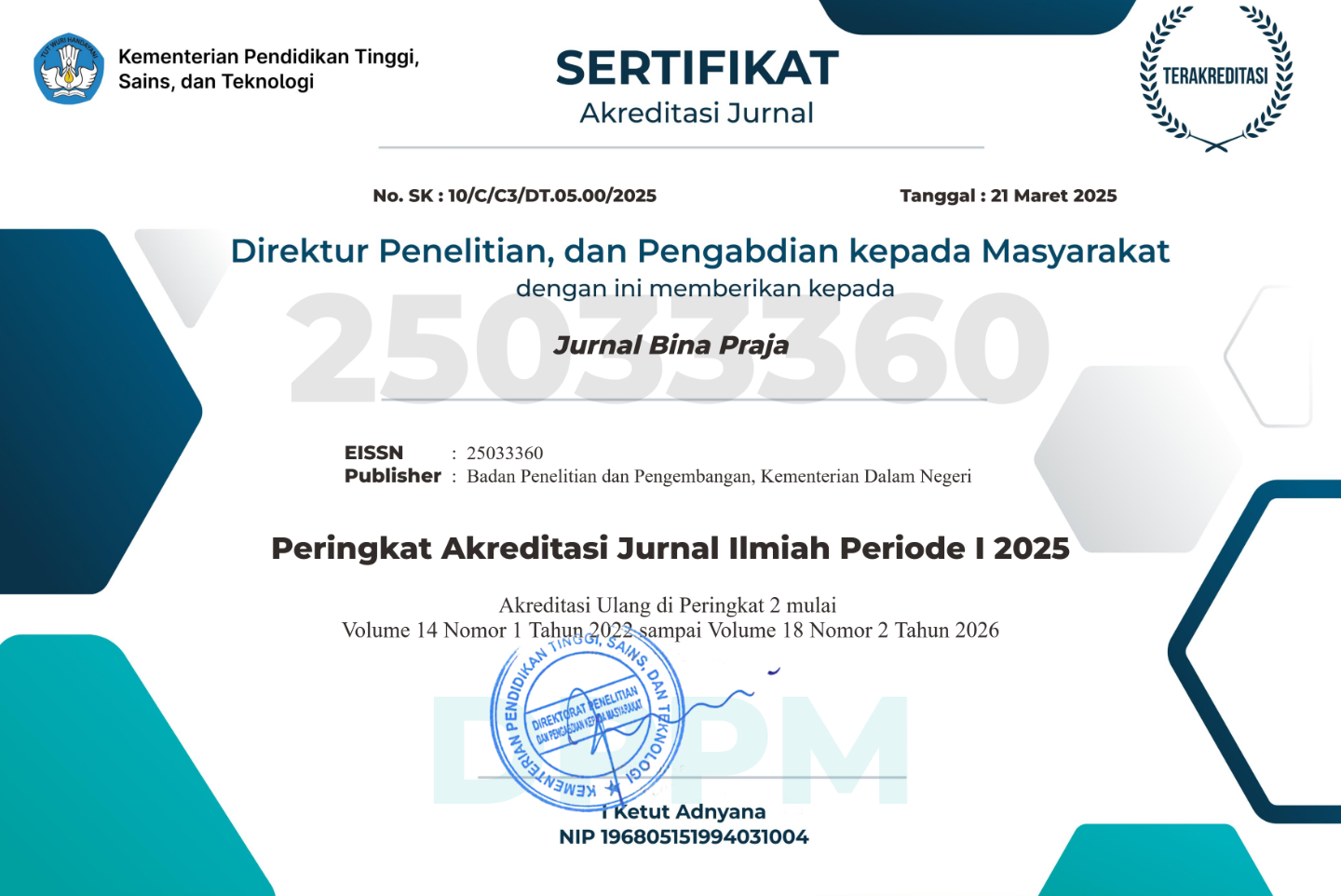Public Service Performance
An Influence of Female Leadership and Good Governance
DOI:
https://doi.org/10.21787/jbp.15.2023.443-452Keywords:
female leadership, good governance, public service performanceAbstract
Abstract: This research aims to analyze an influence of female leadership on public service performance moderated by good governance using the context of local government studies in Indonesia (districts and cities). The findings of this research increase our understanding of the influence of female leadership, public sector governance, and performance in local government service delivery. By using 4,910 local government observation data in Indonesia from 2009 to 2019, the empirical findings of this research showed that female leadership has a positive and significant influence on the achievement of public service performance. Furthermore, these results indicate that having female leadership can help the organization achieve better strategies and goals. In addition, good governance can strengthen the influence of female leadership on the performance of public services. This research implies that the existence of female leadership supported by good governance skills can provide maximum service to the public.
Downloads
References
Abane, J. A., & Brenya, E. (2021). The Relationship Between Organizational Environment Antecedents and Performance Management in Local Government: Evidence From Ghana. Future Business Journal, 7(1), 1–17. https://doi.org/10.1186/S43093-020-00049-2
Adeniji, A. S. (2020). Performance Measurement and Good Governance: An Evaluation of Singaporean Experience and Lesson for Nigeria. Journal of Global Social Sciences, 1(4), 91–110. https://www.researchgate.net/publication/347976060
Al-Ali, A. A., Singh, S. K., Al-Nahyan, M., & Sohal, A. S. (2017). Change Management Through Leadership: The Mediating Role of Organizational Culture. International Journal of Organizational Analysis, 25(4), 723–739. https://doi.org/10.1108/IJOA-01-2017-1117
Beshi, T. D., & Kaur, R. (2020). Public Trust in Local Government: Explaining the Role of Good Governance Practices. Public Organization Review, 20(2), 337–350. https://doi.org/10.1007/s11115-019-00444-6
Brotestes Panjaitan, R., Sumartono, S., Sarwono, S., & Saleh, C. (2019). The Role of Central Government and Local Government and the Moderating Effect of Good Governance on Forest Fire Policy in Indonesia. Benchmarking: An International Journal, 26(1), 147–159. https://doi.org/10.1108/BIJ-12-2017-0336
Eriksson, E., Andersson, T., Hellström, A., Gadolin, C., & Lifvergren, S. (2020). Collaborative Public Management: Coordinated Value Propositions Among Public Service Organizations. Public Management Review, 22(6), 791–812. https://doi.org/10.1080/14719037.2019.1604793
Franken, E., Plimmer, G., & Malinen, S. (2020). Paradoxical Leadership in Public Sector Organisations: Its Role in Fostering Employee Resilience. Australian Journal of Public Administration, 79(1), 93–110. https://doi.org/10.1111/1467-8500.12396
Funk, K. D., Jensen, U. T., Molina, A. L., & Stritch, J. M. (2023). Does Leader Gender Matter for Performance Evaluations? Evidence From Two Experiments. Public Management Review, 25(5), 971–989. https://doi.org/10.1080/14719037.2021.2000222
Hessami, Z., & da Fonseca, M. L. (2020). Female Political Representation and Substantive Effects on Policies: A Literature Review. European Journal of Political Economy, 63, 101896. https://doi.org/10.1016/j.ejpoleco.2020.101896
Krajewski, M., Bendel, P., Bielefeldt, H., Frewer, A., & Pirner, M. L. (Eds.). (2019). Interdisciplinary Studies in Human Rights. Springer. https://www.springer.com/series/15339
Miao, Q., Eva, N., Newman, A., & Schwarz, G. (2019). Public Service Motivation and Performance: The Role of Organizational Identification. Public Money & Management, 39(2), 77–85. https://doi.org/10.1080/09540962.2018.1556004
Mutonyi, B. R., Slåtten, T., & Lien, G. (2020). Empowering Leadership, Work Group Cohesiveness, Individual Learning Orientation and Individual Innovative Behaviour in the Public Sector: Empirical Evidence From Norway. International Journal of Public Leadership, 16(2), 175–197. https://doi.org/10.1108/IJPL-07-2019-0045
Offermann, L. R., & Foley, K. (2020). Is There a Female Leadership Advantage? Oxford Research Encyclopedia of Business and Management. https://doi.org/10.1093/ACREFORE/9780190224851.013.61
Oni, S., & Excellence-Oluye, Nchekwube. O. (2019). Leadership and Good Governance: The Nigerian Experience. LASU Journal of Public Administration and Management, 1(1), 112–129. http://eprints.covenantuniversity.edu.ng/id/eprint/9223
Qing, M., Asif, M., Hussain, A., & Jameel, A. (2020). Exploring the Impact of Ethical Leadership on Job Satisfaction and Organizational Commitment in Public Sector Organizations: The Mediating Role of Psychological Empowerment. Review of Managerial Science, 14(6), 1405–1432. https://doi.org/10.1007/s11846-019-00340-9
Rennie, C., & Berman, E. M. (2018). Leadership and Public Sector Reform in New Zealand. In E. M. Berman & E. Prasojo (Eds.), Leadership and Public Sector Reform in Asia (Public Policy and Governance) (Vol. 30, pp. 257–285). Emerald Publishing Limited. https://doi.org/10.1108/S2053-769720180000030011
Schwarz, G., Eva, N., & Newman, A. (2020). Can Public Leadership Increase Public Service Motivation and Job Performance? Public Administration Review, 80(4), 543–554. https://doi.org/10.1111/puar.13182
Downloads
Published
How to Cite
Issue
Section
License
Copyright (c) 2023 Author(s)

This work is licensed under a Creative Commons Attribution-NonCommercial-ShareAlike 4.0 International License.















